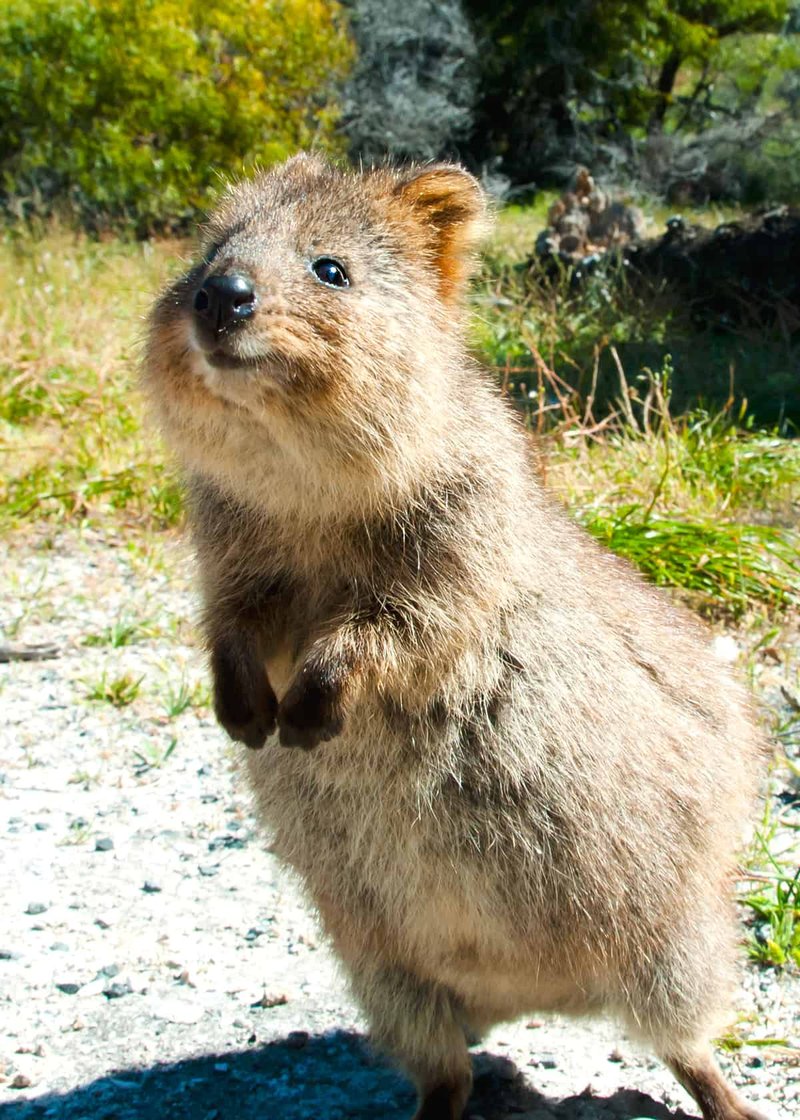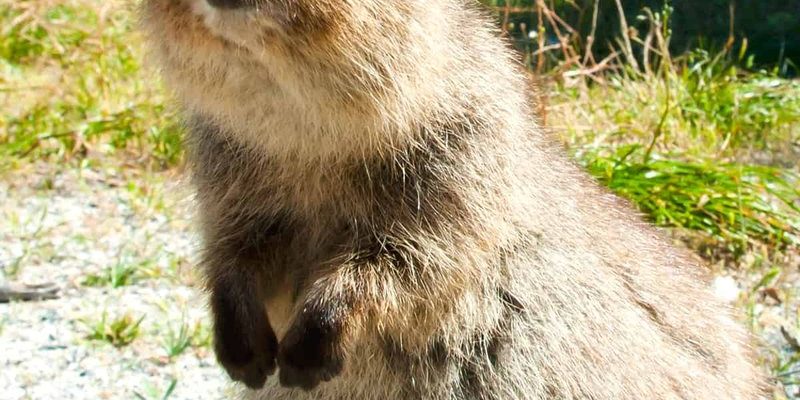
In this article, we’ll explore whether the quokka is endangered, what challenges it faces, and what efforts are being made to protect it. This isn’t just about a cute animal; it’s about conservation and the broader impact we have on our planet. So, grab a cup of coffee, and let’s chat about these lovable creatures and their plight!
What is a Quokka?
Let’s start with the basics. The quokka is a small marsupial native to Australia, primarily found on Rottnest Island, which is just a short ferry ride from Perth. They’re about the size of a domestic cat and have round faces with big eyes and a short tail. Imagine a teddy bear that came to life and decided to be a little more adventurous—this is the quokka’s vibe.
Quokkas are herbivores, munching on grasses, leaves, and fruits. They are most active at night, which is when they come out to forage for food. Their friendly demeanor and curious nature make them a favorite among tourists. Many people see them as the face of ecotourism in Australia. But despite their charm, they face serious threats that could jeopardize their existence.
Are Quokkas Endangered?
Here’s the big question: Are quokkas endangered? The short answer is yes, but let’s dive a little deeper. The International Union for Conservation of Nature (IUCN) classifies the quokka as “Vulnerable.” This means they are at risk of becoming endangered unless conservation measures are taken.
One major concern for quokkas is habitat loss. As humans expand into their natural habitats for development and agriculture, quokkas lose the places they need to live and find food. Think of them like a child who loses their favorite play area because the park gets turned into a parking lot—it’s tough for them to adapt!
Threats to Quokka Populations
Quokkas face several threats that contribute to their vulnerable status. Here are some of the most pressing issues:
- Habitat Loss: Urban development and agriculture encroach on quokka habitats, leaving them with fewer spaces to roam and find food.
- Predation: Introduced predators like foxes and cats pose a significant risk to quokkas, particularly the young ones. These animals often don’t have natural predators in their environment, making them easy targets.
- Climate Change: Changing weather patterns affect food availability and habitat conditions. Droughts can limit the plants quokkas rely on for nourishment.
Each of these threats compounds the others, creating a challenging environment for quokkas to thrive. It’s like a game of dominoes—knock one down, and the rest will follow.
Conservation Efforts for Quokkas
The good news is that there are ongoing conservation efforts aimed at protecting quokkas and their habitats. Various organizations and government bodies are working together, and here’s a look at what they’re doing:
- Protected Areas: Rottnest Island is a protected reserve, which helps safeguard the quokka population. Conservation strategies focus on maintaining and restoring habitats on the island.
- Eradicating Predators: The removal of invasive predator species has shown positive effects on quokka survival rates. This effort requires careful planning and execution but is crucial for quokka safety.
- Public Awareness: Many organizations are fostering awareness about quokkas. By engaging the public and promoting responsible tourism, people can enjoy these creatures while helping protect them.
It’s heartening to see that communities and organizations are coming together to support the quokka, but there’s still much more work to be done.
Why Quokkas Matter
You might be wondering why it’s essential to protect quokkas when there are so many other issues to address. Here’s the thing: quokkas play a vital role in their ecosystem. As herbivores, they help maintain the health of the vegetation and contribute to the overall balance of their habitat.
Additionally, quokkas are an ambassador for wildlife conservation in Australia. Their charming appearance attracts tourists, which can lead to increased funding for conservation initiatives. Protecting quokkas means protecting their environment, which benefits many other species and human communities.
How You Can Help
Even if you’re far from Australia, there are ways you can contribute to quokka conservation:
- Spread Awareness: Share information about quokkas and their threats on social media or with friends. The more people know, the more likely they are to care.
- Support Conservation Organizations: Consider donating to or volunteering with organizations dedicated to wildlife conservation—every little bit helps.
- Practice Responsible Tourism: If you visit destinations where quokkas live, follow guidelines to minimize your impact. Respect their space and habitats to ensure their safety.
Remember, every action counts, no matter how small.
The Future of Quokkas
So, what’s next for quokkas? It largely depends on continued conservation efforts and public support. As we become better at understanding and addressing the threats they face, there’s hope for a brighter future for these lovable creatures.
While they may be small, quokkas are a significant part of Australia’s biodiversity. By ensuring their survival, we help maintain the rich tapestry of life that exists in their ecosystems. It’s a reminder of our responsibility to protect the world around us—just like a good friend would.
In conclusion, the charming quokka may be facing tough challenges, but with concerted conservation efforts and yours and my support, they can continue to thrive. They remind us that every creature, big or small, deserves a chance to live happily ever after—you know, just like that grin on their adorable faces!

